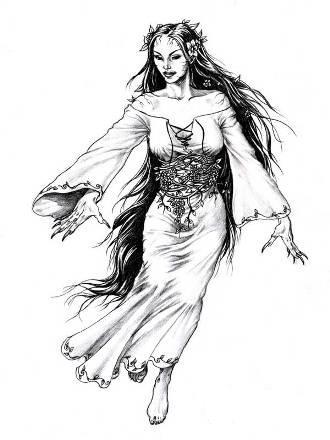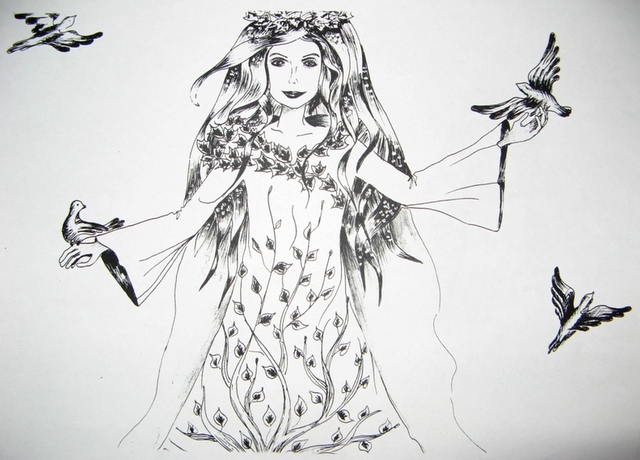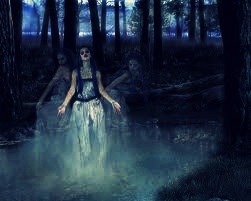by Kamilė
Copyright © 2019
Romanian and Lithuanian Ghosts: Similarities

by Kamilė
- Joined Oct 2019
- Published Books 1
Copyright © 2019
Romanian: the Solomonar or Șolomonar is a wizard believed, in Romanian folklore to ride a dragon and control the weather, causing rain, thunder, or hailstorm.
Lithuanian: Perkūnas was the common Baltic god of thunder, second most important deity in the Baltic pantheon after Dievas. In both Lithuanian and Latvian mythology, he is documented as the god of sky, thunder, lightning, storms, rain, fire, war, law, order, fertility, mountains, and oak trees.
Solomonar

Perkūnas

Romanian: Muma Pădurii is an ugly and mischievous or mad old woman living in the forest. She is the opposite of fairies such as a “Fairy” Zână. She is also the protector of the animals and plants, brewing potions and helping injured animals. She cures the forest if it’s dying, and she keeps the unwanted trespassers away driving them mad and scaring them to flee.
Lithuanian: Medeina or Medeinė is one of the main deities in the Lithuanian mythology. She is a ruler of forests, trees and animals. Her sacred animal is a hare.
Muma Pădurii

Medeina

Romanian: Lucifer is a Latin name for the planet Venus in its morning appearances, and is often used for mythological and religious figures associated with the planet.
Lithuanian: Aušrinė is a feminine deity of the Morning Star (Venus) in the Lithuanian mythology. She is the antipode to “Vakarinė”, the Evening Star.
Lucifer

Aušrinė

Romanian: Cotoroanta the Lernaean Hydra or Hydra of Lerna more often known simply as the Hydra, is a serpentine water monster in Greek and Roman mythology. Its lair was the lake of Lerna in the Argolid, which was also the site of the myth of the Danaïdes.
Lithuanian: Kupolė, the spirit of springtime vegetation and flowers.
Cotoroanta

Kupolė

Romanian: Vântoase are creatures present in Romanian folklore, as a sort of female spirits (Iele). Popular beliefs describe them as capable of causing dust storms and powerful winds. They live in forests, in the air, in deep lakes, and use a special wagon for traveling. The Vântoase are also believed to be capable of attacking children, and the only protection against them is the mysterious “grass of the winds”. In other legends, they are believed to be servants of God.
Lithuanian: Vėjopatis, god of the wind and master of Dausos.
Vântoase

Vėjopatis

Published: Oct 25, 2019
Latest Revision: Oct 25, 2019
Ourboox Unique Identifier: OB-680187
Copyright © 2019







